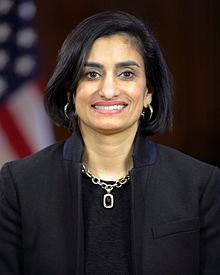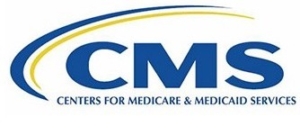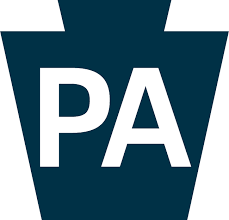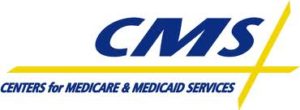Congress Gives Hospitals Medicaid DSH Relief
Medicaid DSH allocations to states will not be reduced right away thanks to a new continuing resolution to fund the federal government through December 11.
The Medicare disproportionate share allocation cuts to the states, mandated by the Affordable Care Act but delayed by Congress several times, were delayed again earlier this year but scheduled to take effect on November 11. With the latest continuing resolution, the cuts will be delayed yet another month.

SNAP worked hard to encourage Congress to include the Medicaid DSH delay in the continuing resolution, doing so most recently in this September 14 letter to members of Pennsylvania’s congressional delegation. Medicaid DSH payments are an important tool in helping Pennsylvania safety-net hospitals serve their predominantly low-income communities, so SNAP also is urging Congress to eliminate the Medicaid DSH cut entirely.
Learn more about the delay of Medicaid DSH cuts and other aspects of the continuing resolution that affect hospitals in the Healthcare Dive article “Providers win Medicare loan extension, DSH relief but lose other asks in stop-gap spending law.”
 In a tweet earlier this week, Centers for Medicare & Medicaid Services Administrator Seema Verma wrote that
In a tweet earlier this week, Centers for Medicare & Medicaid Services Administrator Seema Verma wrote that
 In the guidance, the Centers for Medicare & Medicaid Services explains that because of several court rulings, states can decide for themselves whether to offset third-party payer payments from costs in their Medicaid DSH calculations for periods prior to June 2, 2017 but that beginning with that date, CMS will enforce its own interpretation of the policy.
In the guidance, the Centers for Medicare & Medicaid Services explains that because of several court rulings, states can decide for themselves whether to offset third-party payer payments from costs in their Medicaid DSH calculations for periods prior to June 2, 2017 but that beginning with that date, CMS will enforce its own interpretation of the policy. In its letter, SNAP asked the senators to advocate:
In its letter, SNAP asked the senators to advocate: There are now positive cases of COVID-19 in 60 of Pennsylvania’s 67 counties.
There are now positive cases of COVID-19 in 60 of Pennsylvania’s 67 counties. The Office of Children, Youth, and Families (OCYF) has developed these
The Office of Children, Youth, and Families (OCYF) has developed these  CMS has introduced dozens of changes that involve waivers from current regulations and requirements. A comprehensive, 26-page CMS document describing these changes can be found
CMS has introduced dozens of changes that involve waivers from current regulations and requirements. A comprehensive, 26-page CMS document describing these changes can be found  CMS is waiving current requirements to permit physicians whose privileges will expire to continue practicing at the hospital and for new physicians to be able to practice before full medical staff/governing body review and approval to address workforce concerns related to COVID-19. CMS also is waiving requirements about details of the credentialing and privileging process.
CMS is waiving current requirements to permit physicians whose privileges will expire to continue practicing at the hospital and for new physicians to be able to practice before full medical staff/governing body review and approval to address workforce concerns related to COVID-19. CMS also is waiving requirements about details of the credentialing and privileging process. CMS is waiving the requirement that physicians and non-physician practitioners must perform in-person visits for nursing home residents and will permit visits to be conducted, as appropriate, via telehealth options.
CMS is waiving the requirement that physicians and non-physician practitioners must perform in-person visits for nursing home residents and will permit visits to be conducted, as appropriate, via telehealth options. CMS is waiving various requirements that limit and define the use and documentation of verbal orders in a hospital.
CMS is waiving various requirements that limit and define the use and documentation of verbal orders in a hospital. CMS has published guidance on
CMS has published guidance on  The legislature continues to deliberate on a number of measures to respond to the COVID-19 crisis. Among the issues being discussed between the administration and legislature are:
The legislature continues to deliberate on a number of measures to respond to the COVID-19 crisis. Among the issues being discussed between the administration and legislature are: Department of Health (DOH) Secretary Rachel Levine, M.D., provided her daily COVID-19 briefing. She reported that the number of cases in the state is doubling every two to three days and she expects the pandemic to spread to additional rural counties.
Department of Health (DOH) Secretary Rachel Levine, M.D., provided her daily COVID-19 briefing. She reported that the number of cases in the state is doubling every two to three days and she expects the pandemic to spread to additional rural counties. CMS issued an FAQ explaining requirements for and distribution of the 6.2% enhanced FMAP stipulated in the Families First Coronavirus Response Act. States should expect to see their first payments no later than tomorrow. The document explains that the enhanced FMAP doesn’t apply to expansion population, though it does apply to DSH. It will flow through to the CHIP enhanced FMAP calculation but not in equal percentage point values for all states and the 100% cap on matching remains in effect. States will not need to submit a state plan amendment in order to receive the funding. The complete guidance document is available
CMS issued an FAQ explaining requirements for and distribution of the 6.2% enhanced FMAP stipulated in the Families First Coronavirus Response Act. States should expect to see their first payments no later than tomorrow. The document explains that the enhanced FMAP doesn’t apply to expansion population, though it does apply to DSH. It will flow through to the CHIP enhanced FMAP calculation but not in equal percentage point values for all states and the 100% cap on matching remains in effect. States will not need to submit a state plan amendment in order to receive the funding. The complete guidance document is available  The Food and Drug Administration (FDA) published six updates over the weekend. New updates from Friday through today:
The Food and Drug Administration (FDA) published six updates over the weekend. New updates from Friday through today: Since yesterday, the Department of Human Services has issued the following four new guidance documents:
Since yesterday, the Department of Human Services has issued the following four new guidance documents: Governor’s Order Closing State Businesses
Governor’s Order Closing State Businesses CMS Catastrophic Plan Coverage Guidance
CMS Catastrophic Plan Coverage Guidance